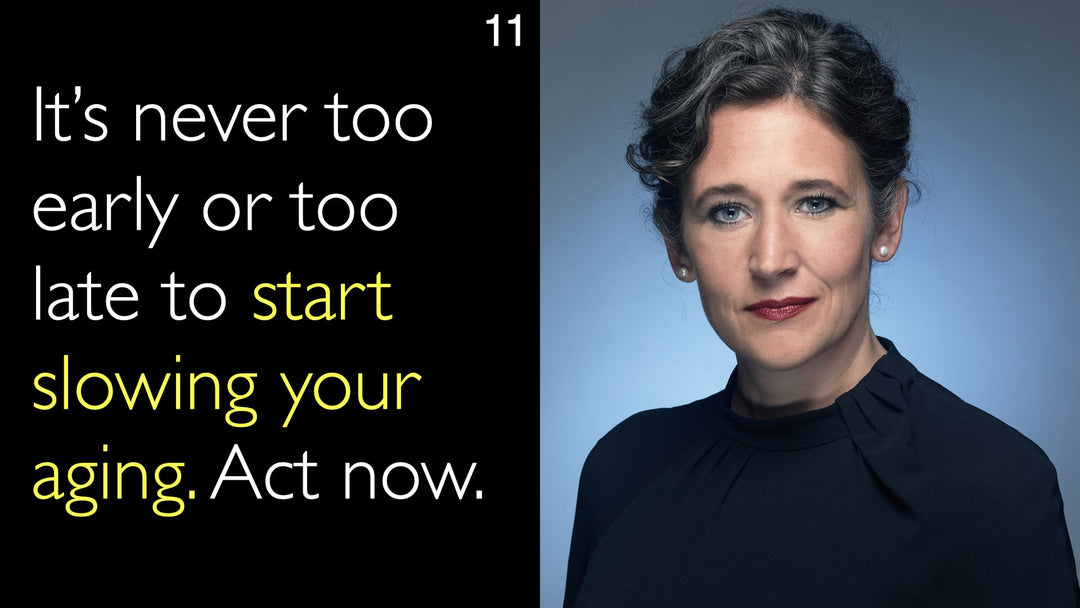Leading expert in aging and gerontology, Dr. Andrea Maier, MD, explains how functional decline begins early in life. She emphasizes that proactive health measures are crucial at any age. Dr. Andrea Maier, MD, highlights research showing significant benefits from lifestyle changes, even for individuals in their 90s and 100s. Strength training and cardiovascular exercise can dramatically improve physical adaptability and outcomes.
Slowing the Aging Process: Early Intervention and Lifelong Strategies
Jump To Section
- Aging Begins Early
- Functional Decline Measurement
- Lifestyle Changes Impact
- Exercise Benefits for the Elderly
- Body Adaptability in Aging
- Full Transcript
Aging Begins Early
Dr. Andrea Maier, MD, states that the aging process starts very early in life. She advises against waiting until middle age to address health changes. This proactive approach is fundamental to geriatric medicine and preventive health strategies.
Functional Decline Measurement
Functional decline is already measurable at a young age, according to Dr. Andrea Maier, MD. She notes that major bodily changes become more apparent by ages 40 or 50. Dr. Anton Titov, MD, discusses the importance of recognizing these early signs for timely intervention.
Lifestyle Changes Impact
It is never too late to implement positive lifestyle changes. Dr. Andrea Maier, MD, references extensive studies involving nonagenarians and centenarians. These studies demonstrate that improving one's physical shape yields benefits at any stage of life.
Exercise Benefits for the Elderly
Dr. Andrea Maier, MD, highlights specific exercises like strength training and resistance exercise. Cardiovascular fitness is crucial for maintaining health in advanced age. Dr. Anton Titov, MD, explores how these activities contribute to longevity and vitality.
Body Adaptability in Aging
The human body remains highly adaptable throughout the aging continuum. Dr. Andrea Maier, MD, confirms that doing the right interventions leads to great outcomes. This adaptability is a key focus in modern anti-aging research and clinical practice.
Full Transcript
Dr. Andrea Maier, MD: Aging starts very early. We know that the functional decline is already measurable at the age of your own life and health. Please do not wait until you're 40 or 50 when you see that there are major changes in the body. So be aware of changes already at a quite early age.
The second thing I would like to highlight is that it's never too late to make changes to your life. For example, changing lifestyle. We do lots of studies, and did lots of studies in the past, including in nonagenarians or centenarians, where we have very old individuals. They said, "Okay, let me get into a better shape."
I can tell you, for example, about strength training, resistance exercise training, cardiovascular fitness. It helps the body even at higher ages. It is adaptable. You will have great outcomes if you do the right thing.
We see aging as a continuum within a life circle. But it's never too late to make changes and start.




